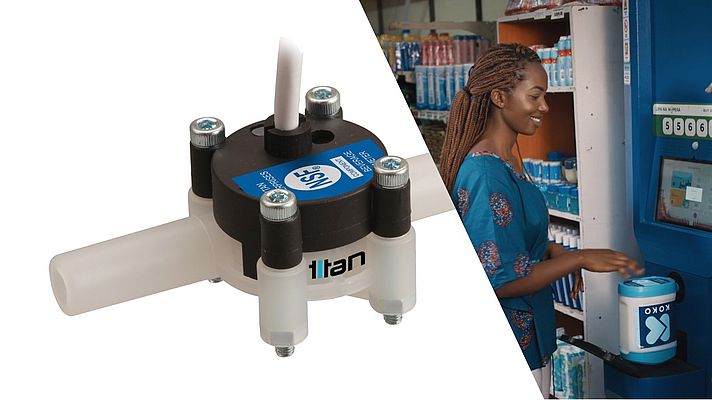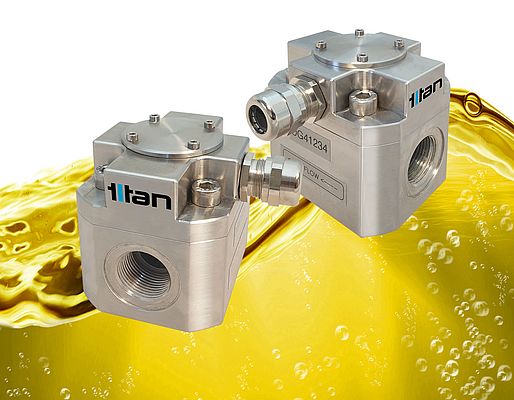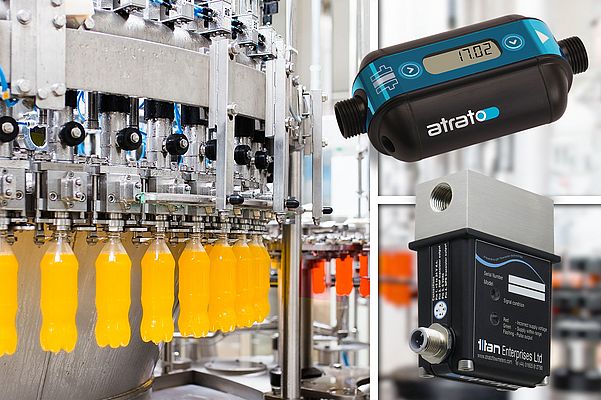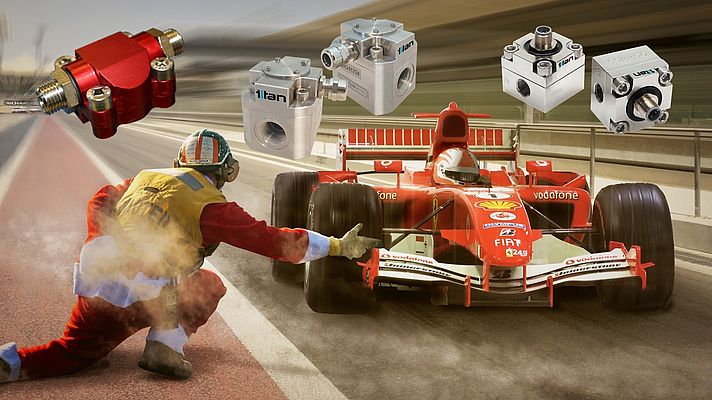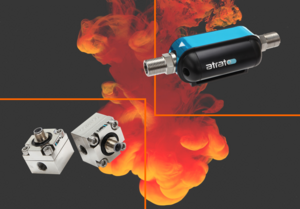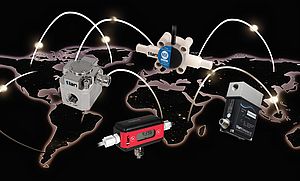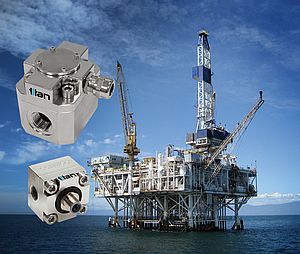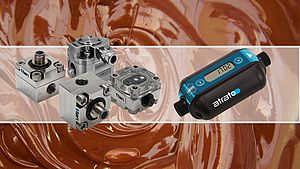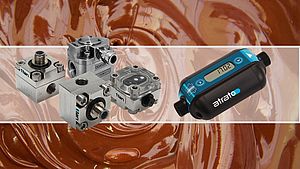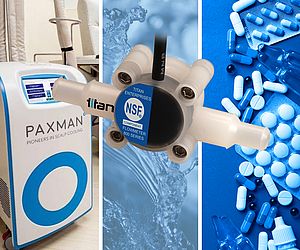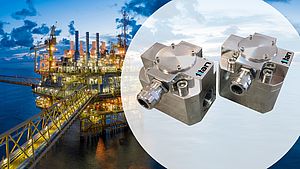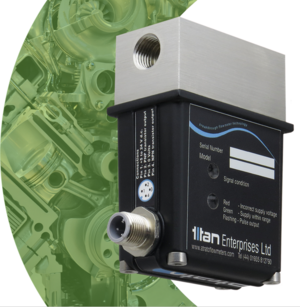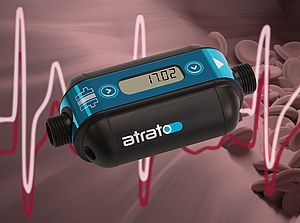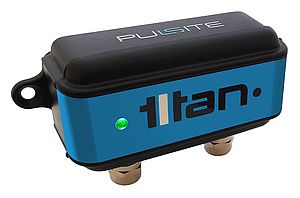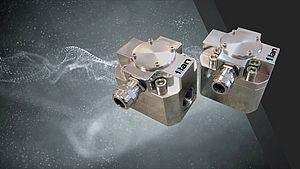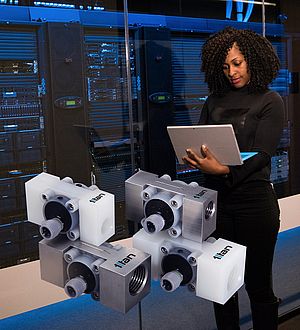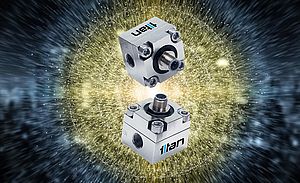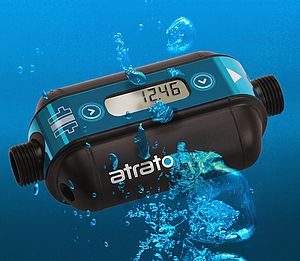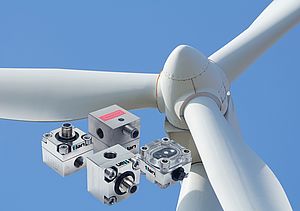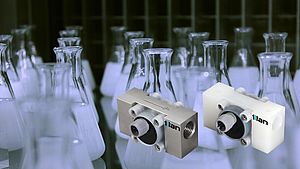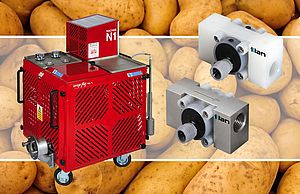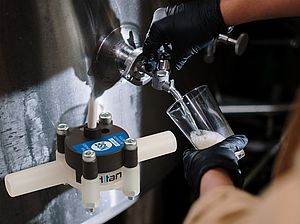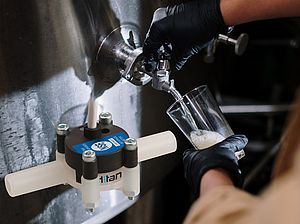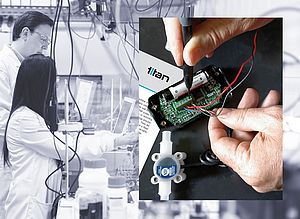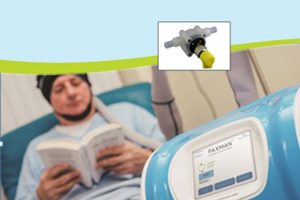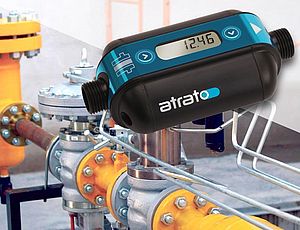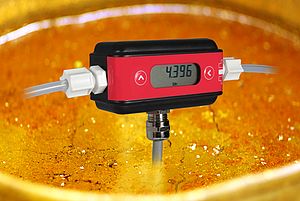With over 40 years’ experience in liquid flow meter innovation, Titan Enterprises Ltd are a UK-manufacturer of high-performance solutions such as the Atrato ultrasonic flow meter, Oval Gear flow meters and the low flow Turbine flow meters and instrument range. The company’s knowledgeable team of engineers can offer either an off-the-shelf meter or fully bespoke flow system designed for a particular application, whether it is a low-cost OEM solution or a specialist flowmeter in exotic materials.
Neil Hannay is Senior R&D Engineer at Titan Enterprises. He joined the company in 2018 to manage the development of new flow measuring systems. His previous experience over the last 25 years includes project managing industrial research and development, focusing on process devices and processes for gas and liquid systems for the oil and gas, chemical, food, water and pharmaceutical sectors. He began his career in water treatment process and equipment design, focusing on flocculation, ozonation and biological treatment processes and devices and then moving to biological and chemical process development in the food and chemical industries. Over the years, Neil has accumulated expertise in gas and liquid flow control and measurement and customer process integration.
IEN Europe: What is the impact of Brexit and Covid-19 in regard with your activity and sector?
Titan: The manufacturing industry is certainly beginning to feel the knock-on effects from Brexit and Covid-19, both in terms of material costs and lead times. As a UK manufacturer, the majority of our materials are sourced from UK suppliers but further down the supply chain when materials are sourced overseas, that is where we are seeing a rise in costs. Those costs are, as expected, passed back up the chain which ultimately has an impact on our own product prices. Materials such as stainless steel and electronics/circuit boards are examples of components that are struggling to catch up with production times and also carry a hefty price increase.
On the upside, the flowmeter market has remained strong and the industries that we supply into have come back fighting. Titan itself has maintained its level of investment in R&D and are now ahead of pre-Covid sales levels. We are also working with our suppliers to minimize the knock-on effects to our customers.
Can you tell us more about the design improvements that have been made in your oval gear flowmeters?
The increase in production lead times for stainless steel casting gave us an opportunity to make some product design improvements, particularly regarding our Oval Gear (OG) flowmeter range. We have pressure tested a new machined stainless-steel design for the bodies and caps of Titan’s OG3 and OG4 flow meter models. The pressure capability of both these compact rugged positive displacement flowmeters has increased from 50 bar to a maximum operational pressure rating of 100 bar, making these more affordable units for some users.
The high viscosity design of the body type for the OG3 and OG4 flow meters, standardizing the location of the spindle in the cap as well in the body and incorporating a recessed spot face to give extra protection on the critical seal face, have made the products more durable. These design modifications overall, have enabled us to limit any price increases to these products and extend the range of applications they can be utilized in.
What are the main challenges of metering fluid flow in high accuracy, rapid batch control applications?
Flowmeter resolution or granularity has always been a potential issue with batching processes. Operating a reliable batch filling process is contingent upon all process conditions being constant - pressure, temperature, viscosity - to ensure repeatability. For high-speed batching systems, additional considerations must be taken into account: choice of equipment, type of flow meter used, piping and overall process design. Electronic flow meters - ultrasonic, Coriolis and electromagnetic - usually have fixed measuring periods, presenting a trade-off between response time and affordability.
Mechanical flow devices can be problematic for any hygienic requirements, so electronic flow meters, such as Titan’s Atrato® ultrasonic flowmeters with no moving parts, are desirable for high-speed batching, as they cope with a wide variety of liquids and can be easily cleaned, making them ideal for hygienic processes.
What characteristics of your ultrasonic flowmeters make them suitable for use in many liquid flow conditions?
The advantages of ultrasonic flowmeters are that they give outstanding accuracy, have a fixed pressure loss at all flow rates, and are reliable over a wide range of pressures and temperatures. Ultrasonic flowmeters such as the Atrato®, are an ideal solution for measuring low flows. With no internal moving parts, they do not interfere with the flow, can measure most types of liquid, do not require liquid conductivity, are not influenced by changes in viscosity, and have good turndowns.
What applications could benefit from precise measurement of fluid flows in the future?
Two specific applications come to mind, particularly in light of the current fuel crisis. With the increased cost of fuel, people are becoming more interested in understanding and monitoring the real efficiency of petrol/diesel fuel systems and how to optimize them. An engine’s fuel consumption and hydraulic oil flow is important within the transport industry, from high performance vehicles and trucks to large super tankers and boats. Metering fuel consumption can be achieved using flow measuring devices such as Titan’s Oval Gear flowmeters.
The other prominent sector is intravenous drug administration where accurate dispensing is paramount. We have done some extensive pioneering work with a USA medical company to produce a disposable ultrasonic flowmeter that would measure the volume of liquid manually injected into a patient. Accurate dosing of drugs in a medical environment, such as in chemotherapy treatments, can be controlled and monitored using flowmeters.
Do you foresee an expansion in the number of applications that use flow measurement devices?
Building on the fuel issue, the green energy and environmental sustainability market is expanding. Precise batch dosing within the chemical processes involved in the production of biofuel is critical. Companies such as Green Fuels, use Titan’s Oval Gear flow meters within their biodiesel plants converting bio waste into sustainable biofuels.
Incorporating Titan’s NSF-approved 800 series turbine flowmeters, we are playing a vital role in supporting KOKO Networks, a pioneering company in East Africa that has created a scalable solution to the dirty fuels problem. Bioethanol, a sustainable by-product of the local sugar industry, is an ultra-clean alternative cooking fuel. KOKO’s fuel distribution model delivers cheap, safe and clean cooking fuel into African homes, removing the need for single-use plastic bottles and the reliance on the more traditional cooking fuels of charcoal and paraffin.
What technical developments do you foresee for flowmeters in 2022?
The focus technology for Titan at present is our ultrasonic liquid flow measurement devices. With the fast-paced technological developments within the electronics industry, there is scope to produce more accurate and bespoke flow measuring systems at an affordable price, especially desirable within the food and pharmaceutical/medical markets. Taking our Atrato® ultrasonic flowmeter product design understanding, we have pushed both electronics and physical design to improve the overall performance window. We have recently launched our new software interface for the Atrato, greatly improving its functionality and are looking at other applications within the medical and food and drinks industry.
We are also investing in R&D to explore the use of different materials for flow meters suitable within different applications where chemical resistance, longevity and hygiene for example, are priority. In addition, increasing our add-on / complimentary equipment for our flowmeter range, such as a new programmable pulse converter with analog outputs, is an area of technological development for Titan.
Anis Zenadji


